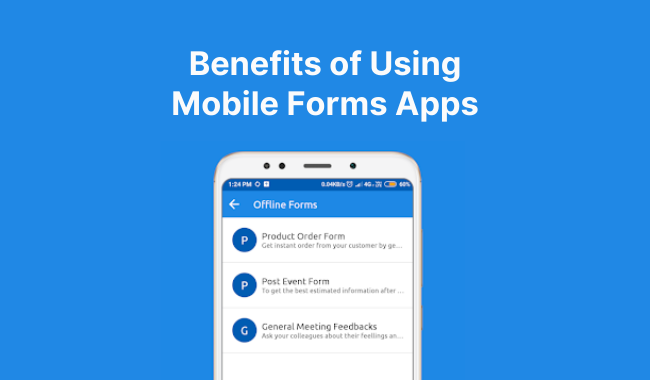
One of the most important aspects of any business today is about collecting data. But the traditional means of data collection leaves the possibility for missed information and mistakes to be made, which is where a forms app would come in handy.
Those who work while mobile know that there is not always the opportunity to access a computer, which makes having a mobile solution all the more beneficial. Information can be seen in real-time at any time using a mobile application. There are even more benefits of using mobile forms applications.
Benefits of Using Mobile Forms Apps
1. Sharing Information
Having information is great, but if it is outdated, it can become far less effective. Being able to access information real-time can have massive benefits depending on the industry. Using a mobile app can keep data current and easily accessible.
Moreover, it can condense that information down into a digestible format. The more familiarity with the app, the easier it will become to find the information needed in the moment. Depending on the industry, having access to up-to-the-second real-time information can be one of the most important tools available.
2. Time and GPS Stamps
Having access to real-time information through a forms app is great, but what happens if you need to go back to that information at a later time? The good thing with these apps is that they can track both the time and even the GPS location of things such as service calls.
For business owners, that means tracking work records, noting calls completed, and doing so as accurately as possible. For auditing purposes especially, this can be an invaluable tool for record-keeping that would have been extremely tedious and difficult to achieve previously.
3. Dispatch Forms
For service industries, being able to respond to customer requests in short order is the crux of the business model. Being able to dispatch to those jobs just as quickly becomes equally as important to the business.
With an online or mobile app, jobs can be quickly dispatched and logged for the records. When the job has been assigned, the proper personnel can be assigned quickly so that there is minimal wait time for the customer.
All of which means providing faster, more efficient services, which ultimately leaves the customer feeling better about the service provided.
4. Offline Features
Being connected at all times has become expected no matter the business or location. But the simple fact of the matter is that not every area has cell or Internet service. So, instead of being stuck without access to these apps, there are offline features to accommodate the downtime.
With those offline features, employees can keep working or still have access to the important features that they need without having to worry about a connection.
That means never disrupting communication between colleagues when it cannot be afforded. It also means continuing to see current information regarding the project, which is vital to the project’s success.
